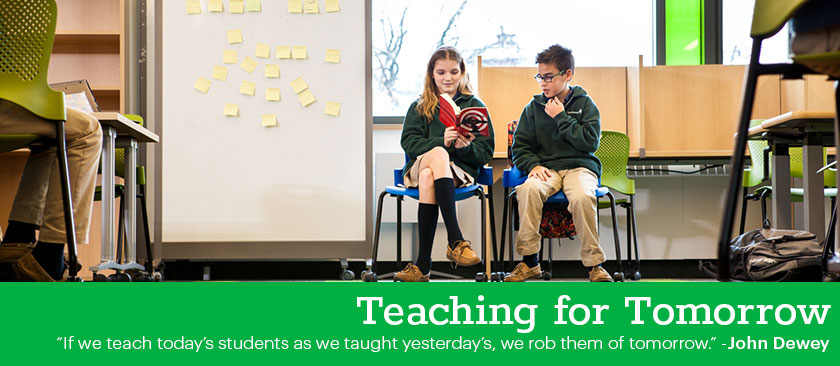Grade 10 Canadian History students get out of the classroom to experience history first hand.
 |
Greenwood's history department maintains
a close relationship with the Sunnybrook
Veterans' Centre. |
Greetings from the world of Grade 10 Canadian History! Previously,
Eugene Henry blogged about new approaches the Canadian History team has taken to teaching the Second World War by making use of the
blocked schedule and blended learning strategies. As well, we are focusing on
authentic and experiential learning to further promote historical thinking. With the students having just returned from their “streamed” field trips, this blog installment appropriately focuses on the authentic and experiential learning element of this new direction.
Early in the second term, the students were asked to choose which
lens interested them the most about WWII. Their choices were:
- WWII technology and the tactics that made use of that technology
- The Legacy of the Holocaust
- Living History: the legacy of Canadian veterans and our public memory of their contributions
Allowing the students to follow their interests, they were reorganized into new groupings based on the above three ‘streams’. Deep into their studies of the Second World War, it is safe to say this approach has been met with great success, and student interest and engagement is higher than ever. Recently, the students headed out of the school to engage in authentic experiences tailored to these three streams. Here again, the results were better than we could have imagined.
Learning about WWII is an overwhelming experience and the
statistics from this conflict are unprecedented. Giving our young historians the opportunity to engage in authentic and tangible historical inquiry by meeting the people and being able to reach out and touch the machines that fought this fight undoubtedly helps to breathe life into the history textbooks.
Technology & Tactics
Students of the “technology and tactics" stream headed to the
Canadian Warplane Heritage Museum, where they met with veteran air men and women and mechanics, to witness first-hand the magnitude of some of the most impressive Canadian warplanes that helped the Allies to victory - and still remain in operation today. The students’ experience was focused on stream-specific themes and provided them with opportunities to follow their unique interests in, and purposefully research real world examples of, technology and tactics used in war. They immensely enjoyed the rich experience!
Legacy of the Holocaust
For students of the “Legacy of the Holocaust” stream, the trip to the
Neuberger Holocaust Education Centre was an experience that will not soon be forgotten. Following a morning of interactive programming focused on the legacy of the Canadian Holocaust experience, the students met with Holocaust survivor
Vera Schiff. During the afternoon, students worked in the Centre’s research library further researching survivors of the Holocaust and, in some cases, students’ own family experiences in this awful event. This proved a powerful and emotional experience, and here again the students’ interest was high and their time at the Centre was most rewarding.
Living History
Finally, students in the “Living History” stream spent their morning with seasoned tour guide Richard Fiennes-Clinton of
Muddy York walking tours. The first stop on the tour was the
Queen’s Park War Memorial, commemorating all of the wars that Torontonians have participated in.
 |
The highlight of the walking tour
was the famous Soldiers' Tower,
which is rarely open to the public. |
From there, the group explored war memorials in and around the University of Toronto. The highlight of the walking tour was the trip up the famous
Soldiers’ Tower, which is rarely open to the public!
During the afternoon, the group visited and interviewed WWII veterans at the
Sunnybrook Veterans’ Centre. The Greenwood history department maintains a close relationship with the Centre through annual visits and
a special visit in October to celebrate the 70th anniversary of the Liberation of the Netherlands. Students greatly enjoyed meeting the veterans and hearing their unbelievable stories of survival and heroism, and walked away with a new appreciation of the sacrifice made by these men and women.
Takeaways
All in all, these trips helped the students to further grasp history by allowing them to follow their interests and to experience history in a real and authentic way. We may not be able to live during past events, but meeting the people and touching the artifact from these bygone eras has proved immensely helpful in bringing our history to life!
Charles Jennings
History Subject Team Leader and Adviser Coordinator



